Wot I Think – Styx: Shards Of Darkness
Alec Meer on March 14th, 2017 at 9:00 am.
A few years ago, I probably would have forgiven
Styx: Shards of Darkness [
official site] a multitude of sins (and though there is not a multitude, there is one honking great sin). A proper stealth game that isn’t low-rent or poorly balanced, with a choice of paths and abilities but which doesn’t devolve into routine action – we didn’t used to get too many of them.
Recent times have given us new Dishonoreds and Deus Exes and Metal Gear Solids and Hitmen, endless Assassin’s Creeds and even a so-so Thief, the game Styx most resembles. Hell, even
the new Zelda game has a functional stealth element to it. We are spoilt for stealth choice, and that makes this fantasy wall-hugging sequel a tough sell. What it’s got on its side is purity. What it has against it is its lead character.
To get it out the way, no prior experience of the first Styx game is required to understand what’s going on here. I have not played Cyanide’s 2014 game myself, and though there is a glossing over of the setup – a fantasy world in which goblins are an animalistic pest in the world of man, but one, Styx, is intelligent – there was nothing truly unclear. The little bastard’s a thief, goddit.
He’s also a Thief, with Styx’s core being based heavily on the Looking Glass stealth classic – navigate around a large area, stick to the shadows, climb over and around get the loot, get out, and if you’re caught you’re almost certainly dead. However, where Thief broadly keeps its fantasy low (i.e. trick arrows and and a tricksier eyeball), Styx spins off into a few more fantastical abilities.
The foremost of these is the heightened mobility that being a beclawed munchkin affords him, so there’s far more climbing and hanging involved here. It’s nothing you’ve not seen in, say Assassin’s Creed, but there’s a definitely a bit more hanging by your fingernails or swinging from convenient ropes than a Dishonored.
More singular is Styx’s ability to vomit up a mindless clone of himself, which he/you can then direct to perform a few basic actions, such as distracting an enemy or knocking something onto them from a great height. Depending on what you pump your upgrade points into, this power can expand to include summoning cloney inside a mid-air cocoon or magically swapping places with him. In terms of opening up new ways to play what’s otherwise quite a familiar game, this is your best option.
Other tricks primarily relate to various consumables, from the obvious deadly dart to short-term invisibility potions to an acid solution that dissolves bodies on the spot. The skill tree’s big enough that one playthrough will only snag you a portion of its branches, and really that’s the biggest draw here – flexibility in how you play, but always within the boundaries of a fairly pure stealth game.
While Dishonored, Deus Ex, MGSV and even Hitman to a very slight extent offer the option to be a mass murderer in broad daylight, in Styx you might survive one or two fights against a lone opponent, but generally speaking getting seen means becoming a greenskin rug. Which is to say, if you object to the presence of open combat options in your stealth games, you’ll probably get a lot out of Styx. This is a game about the art of not being seen, and not really one of madcap improv if you are.
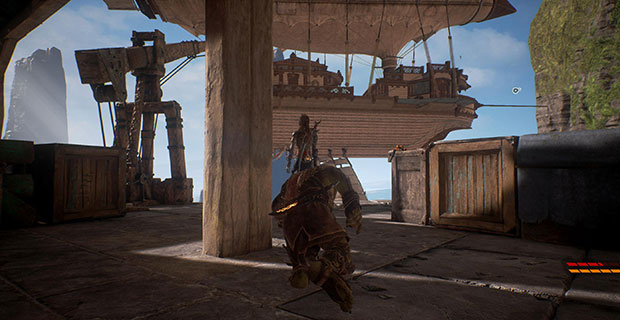
Escape is eminently possible thanks to Styx’s mobility, and that leads to the age-old ‘must have been rats’ reset after the murderous guards’ alert timers cool off, but running and hiding is pretty much your only option. Even then, the game so loudly declares that you’ve screwed the points bonus you get for a perfect run that the temptation to reload is overwhelming. Same goes for killing – although Styx has a whole upgrade path dedicated to silent assassination, you miss out on points for mercy if you avail yourself of your weapons.
Now, usually I gravitate towards non-lethal options in stealth games. I like the challenge of it, be it avoidance or the generally longer incapacitation sequences involved, and I like the idea that I’m being Not A Bad Dude. The friends and family of a henchman, and all that. In Styx, however, absolutely everyone is so hateful that I simply do not give a shit. Kill ’em all. They’re all shits. It’s so much easier. Shame about those experience points, mind you.
We’re shown a word in which most humans blindly murder goblinkind, and though Styx is the only one of them who can speak or, seemingly, think, this attitude stinks enough that I lose all my usual hesitation about bloodshed. What is mercy for here?
The flipside of this is that no-one in the game is more hateful than Styx himself. Perhaps some will lap up the banal venom of his humour, but for me it’s a significant misfire, to the point that I struggled to enjoy a game I otherwise would have done.
I suspect the game’s creators believe that, in their fourth-wall breaking, wisecracking, sneering protagonist, they’ve made Fantasy Deadpool. He chastises the player for their failings, he makes references to films and other games and pizza, he questions the likelihood that the person who bought this game will ever find a sexual partner, he insults the developers’ wisdom and talents. (Never do this in your game unless you are supremely confident your game is basically perfect, otherwise you are essentially telling the player that, yes, they’ve just wasted their money).
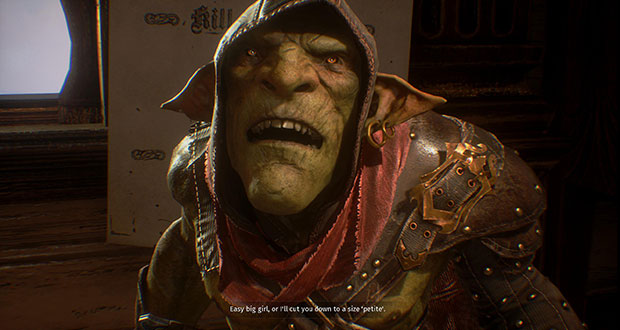
This kind of humour is playing with fire at the best of times, and Styx is very much not the best of times. The gags are incredibly broad and obvious, some of the terminology is simply insulting without being funny enough to get away with it (e.g. a woman’s weight is repeatedly mocked), many of the references are outdated and, to make matters worse, the wording often sounds like it ran through Google Translate a couple of times.
To his eternal credit, the guy who lends Styx his salty New Yoik tones is clearly a total pro, lending a certain amount of charisma to the character even though the actual words spoken are purely dreadful. I would buy that man a pint if I ever met him, and then clasp him into a sympathetic hug. Despite my sense that this was a good man in a bad situation, any time I died I found myself desperately hammering F9 in the hope I could quickload before the awful wisecrack-to-camera sequence that follows every death. And therein lies the rub – Styx would be an infinitely better game without Styx.
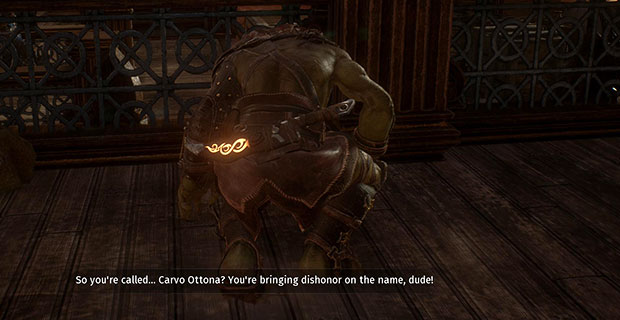
This is a decent stealth game saddled with wretched characterisation. Insult to injury is that it has all this sub-Deadpool bollocks while at the same time offering a deeply dour fantasy story that we’re supposed to take seriously. Once in a while, Styx’s scoffing dismissal of all the magic wank is a blessed relief, but the trouble is that then the magic wank proceeds to wank on and on anyway. This is a game that’s having its wank-cake and wanking it.
The stealth game underneath this miserable skin is solid. Often very flashy too, in its environments, range of powers and choice of routes, but undermining that sometimes severely is that its Assassin’s Creed-style ‘jump from a ledge or wall to somewhere else’ system misfires frequently.
Too often, I plunged to my death purely because Styx did not leap to the handhold he either either appeared to be reaching for or was the only logical place to go. It’s not quite so unreliable as to make the game consistently frustrating, but something there is seriously in need of a fix. I learned to speculatively quicksave my way around it, which isn’t ideal but was enough to let me keep thinking that this is a solid pure-breed stealth game.
Personally, I prefer the option for improv more than I do fealty to pure hide-or-die stealth, but it’s clear that this has put the work into making its sneaking work. Though generally saddled with a muddy aesthetic, it makes a reasonable fist of varied environments and scattering optional, harder sub-goals across them. It’ll keep you busy and, particularly if you’re playing non-lethal, demands careful planning and thought.
There isn’t ever the magic puzzle-box feel of a Dishonored or the shocks of Thief in its bravura moments, but it mixes up its environments plenty. There’s plenty of the ‘hmm, now how can I get into there?’ of a Splinter Cell or Deus Ex.
Clearly, a lot of money and skill has gone into making Shards Of Darkness, which only makes the fact that you have to battle past this woeful characterisation to get to the strong stealth meat below all the more tragic. Give me a mod that lets me turn off Styx’s comments and I’ll like it a whole lot more. Until then, Styx out of ten.
Styx: Shards of Darkness is out today on Windows via Steam and Humble for £35/$40/€40.






























![The Year of Incline [2014] Codex 2014](/forums/smiles/campaign_tags/campaign_incline2014.png)
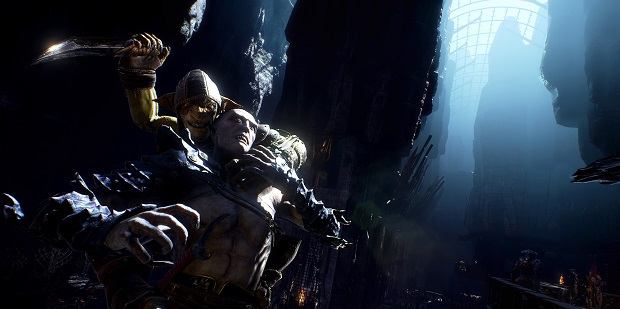


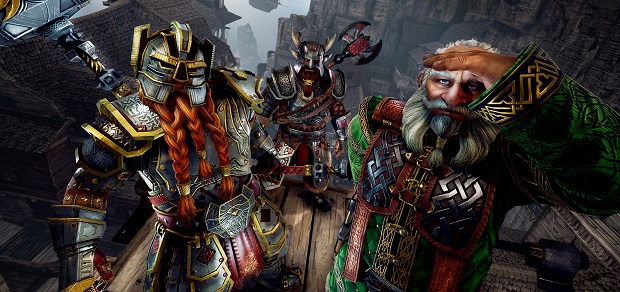



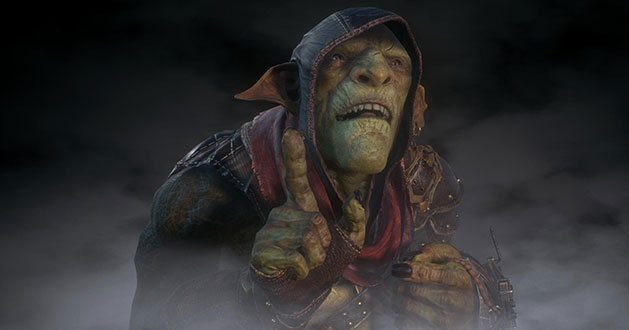
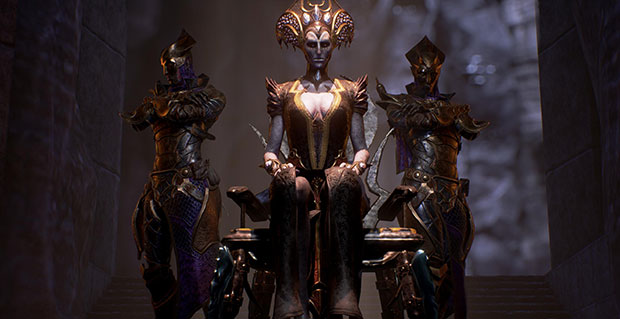






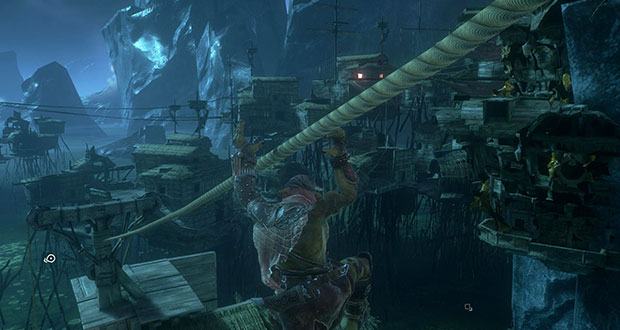
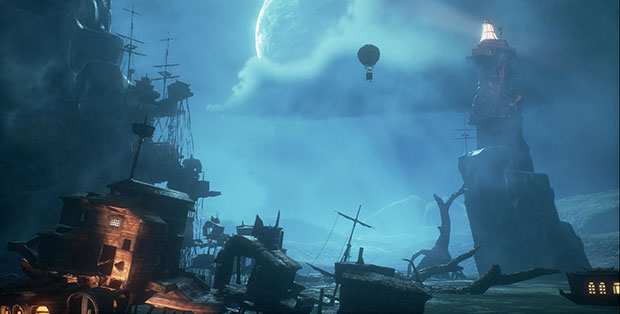


 this.
this.

